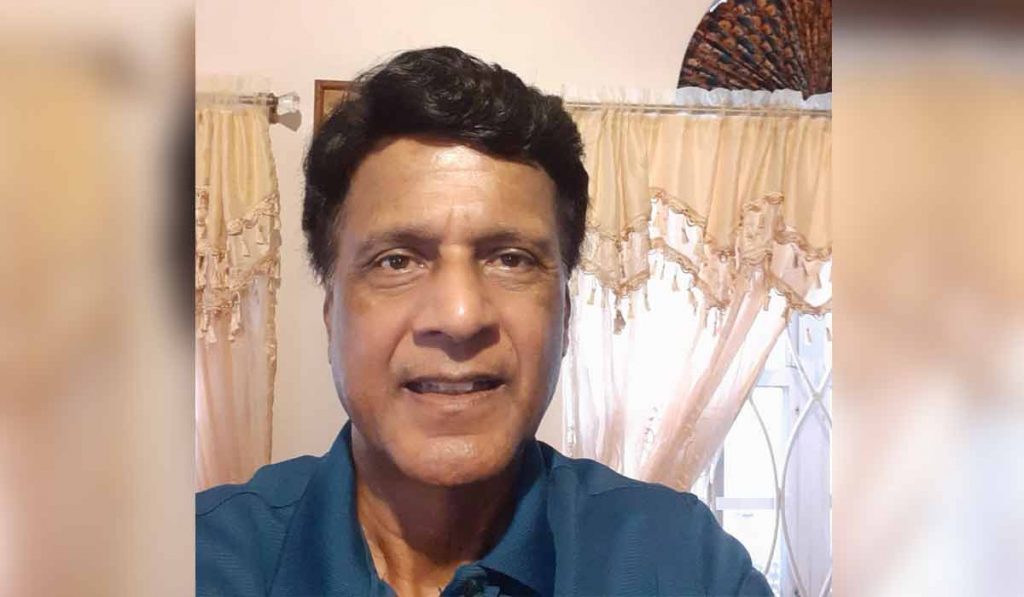ROAR of Ravi Dev
This article is being adapted from something I wrote in 2010, before the 2011 elections, and which called for a new narrative than the conflicting, aggressive ones then being regurgitated. What was the point of sterile polemics – the blame game and finger-pointing – I argued, from which no new ideas have ever come? Unfortunately, not much, if anything, has changed since.
While we constantly invoke our “history” – say, about Jagan and Burnham – we often forget that histories are always written in the present from within a particular “space of experience” in which we are embedded. This colors the ways the past is remembered as we often cherry-pick our “facts” from which so many others have been “silenced”. When we read about Jagan conceding that when Burnham split the PPP in 1955, he took most of African Guyanese with him, do we note his silence that this made him the leader of Indian Guyanese, with whom he was left? And of the contradictions in his subsequent efforts to maintain this silence, which continue to haunt us in our present long after he is gone?
As we relate our narratives based on our reconstructed past, we have to also be aware that we do so with some kind of future we have in mind. This is our “horizon of expectation”: the anticipation of the non-yet-known future beyond the horizon. Do we want a future in which all Guyanese are given an equal opportunity to be successful, or do we want “our” group to maintain advantages over the “other” and so be superior over them? Do we want “equality of opportunity” or do we demand “equality of results” – even though the latter depends on one’s personal efforts?
From this perspective, interrogations of the past to create a future is always strategic. What is it that we want as a consequence of our criticisms, narratives, actions, and exhortations? In a word what is the “Good”, to which we aspire? While there will never be a single horizon of ends for all of us, surely, among the various possibly competing ends, that of a more harmonious society would be there in common. This has to be the common good towards which we should strive.
Crucial to the formulation of a constructive narrative for a harmonious society would be the content of the narrative – particularly its plot to link past, present, and future. The old narrative, for instance, that was used to justify the fight against the old colonial masters we hoped to kick out, sets “us” against “them” into a frenzy of nihilistic Fanonian violence is simply obsolete. Because the “us” and “them” are now “all-ah-we” who have to co-exist in our common homeland.
I have advised that Hegel’s famous interpretation of Antigone as the paradigmatic Greek tragedy might be particularly apt to our situation. In this narrative both “sides” are morally right: the conflict is not between “good and evil” but between “goods” on which each is making an exclusive claim. Isn’t this the situation that our mutually exclusive narratives of victimhood with its facile binary oppositions have delivered us into?
Such a new narrative, I am suggesting, should suggest compromise rather than a battle of one side overcoming. That would be a constructive narrative for our time, place, and circumstances. Our “problem space” – the threats and opportunities that confront us in our present socio-historical conjuncture – is radically different. And so should be our “horizon of expectation” that we should strive to achieve? I am suggesting that with the privilege of hindsight, we should connect the past with the present in a broader narrative that is healing rather than destructive? We cannot change the past but we can certainly change the future.
Most crucially, as I wrote in 2010, our problem space is different even from our immediate post-independence period is that the demographics now deny any built-in ethnic majority, and so opens up the possibilities of a working democracy. A constructive narrative cannot then picture our opposing groups locked in mortal combat.
The 2015 elections proved that either “side” can win elections within such a narrative. We the people have to push the politicians to achieve this greater good
